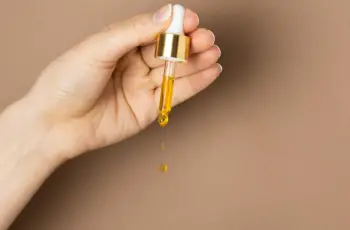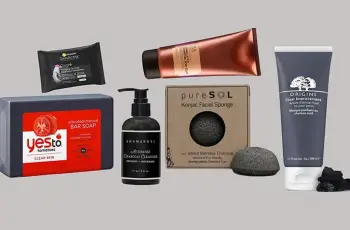
The JNK Gene and Skin Health: Understanding Its Role in Skin Aging and Inflammation
In the complex world of skin biology, one gene has quietly taken center stage in the discussion of premature aging, inflammation, and cellular stress: the JNK gene, also known as c-Jun N-terminal kinases. Pronounced “junk,” JNK may not sound particularly glamorous, but understanding how it functions—and how to prevent its overactivation—could be key to preserving youthful, healthy skin for the long term.
Although skin aging is a multifactorial process involving genetics, environment, and lifestyle, emerging research highlights the significant role of cellular signaling pathways such as JNK in accelerating this process. From increasing collagen breakdown to promoting inflammation and amplifying UV damage, JNK activation acts as a catalyst for many of the visible and invisible signs of skin deterioration.
Let’s dive deeper into what the JNK gene does, how it impacts skin health, and what you can do through skincare and lifestyle choices to mitigate its effects.
What Is the JNK Gene?
The JNK gene refers to a family of protein kinases that are part of the larger mitogen-activated protein kinase (MAPK) signaling pathways. These pathways are crucial communication networks within cells that translate external stress signals—like UV radiation or oxidative damage—into a cellular response.
The JNK proteins play a regulatory role in:
Apoptosis (programmed cell death)
Inflammation
Cell proliferation
Survival and differentiation
Response to oxidative stress
When activated, JNK enzymes move into the nucleus of the cell and influence gene expression by phosphorylating proteins like c-Jun, a key component of the activator protein-1 (AP-1) complex. This AP-1 complex then turns on or off specific genes associated with stress response, inflammation, and tissue remodeling—including those that influence skin health.
Why JNK Activation Is Detrimental to Skin Health
1. Accelerated Collagen Breakdown
One of the most visible signs of aging is a decline in skin elasticity and firmness. This is largely due to the breakdown of collagen, a structural protein that gives skin its strength and plumpness.
Activation of the JNK pathway triggers an increase in collagenase enzymes, especially members of the matrix metalloproteinase (MMP) family, such as MMP-1 and MMP-9. These enzymes actively break down collagen fibers in the dermis, leading to:
Thinner skin
Increased fine lines and wrinkles
Sagging and loss of facial volume
This mechanism is especially problematic when JNK is activated chronically, either by lifestyle choices (e.g., smoking, unprotected sun exposure) or underlying inflammation.
2. Inflammation and Chronic Skin Conditions
JNK signaling is also deeply involved in immune response and inflammation. While inflammation is a normal and necessary function of the immune system, chronic low-grade inflammation can accelerate aging—a process sometimes referred to as inflammaging.
JNK activation increases the production of pro-inflammatory cytokines, such as TNF-α and IL-6. Over time, this leads to:
Damage to skin cells
Impairment of skin barrier function
Worsening of inflammatory skin conditions like rosacea, eczema, and acne
Slower healing from wounds or irritation
In fact, individuals with inflammatory skin disorders often exhibit upregulated JNK signaling in affected skin tissues, highlighting its pathogenic role.
3. UV-Induced Photoaging
The sun is a well-known culprit in skin aging, but did you know that UV rays activate the JNK pathway? When skin is exposed to ultraviolet radiation, it triggers oxidative stress in the form of reactive oxygen species (ROS). This stress, in turn, activates JNK.
This UV-induced JNK activation is responsible for:
Increasing MMP activity and accelerating collagen degradation
Promoting sunspots, discoloration, and textural changes
Depleting antioxidants in the skin, such as glutathione and vitamin E
Damaging DNA, potentially leading to precancerous lesions and skin cancer
This mechanism makes JNK a central player in photoaging, the premature aging of skin due to cumulative sun exposure. The changes in skin tone, elasticity, and texture seen in sun-damaged skin are often irreversible—making prevention key.
How to Prevent JNK Activation Through Skincare and Lifestyle
Since JNK activation is largely triggered by stress, oxidative damage, and UV radiation, managing these external aggressors can help reduce its activation and protect your skin over time.
1. Use Broad-Spectrum Sunscreen Daily
Because UV rays are one of the primary triggers for JNK activation, applying a broad-spectrum sunscreen with SPF 30 or higher is one of the most effective ways to protect the skin. Look for sunscreens that also contain antioxidants like vitamin C or green tea extract, which help neutralize free radicals before they can trigger the JNK pathway.
2. Incorporate Antioxidants into Your Routine
Antioxidants help counteract oxidative stress—the main activator of JNK. Include topical and dietary antioxidants such as:
Vitamin C (ascorbic acid): Boosts collagen and neutralizes ROS
Niacinamide (Vitamin B3): Reduces inflammation and improves skin barrier
Vitamin E: Helps stabilize cell membranes and complements vitamin C
Green Tea Extract: Contains polyphenols that inhibit JNK activity
Resveratrol: A plant-based antioxidant known to reduce cellular stress
3. Stimulate Collagen Production
To counteract the collagen breakdown promoted by JNK activation, consider using ingredients that stimulate collagen synthesis, such as:
Vitamin C
Peptides
Retinoids (Retinol, Retinaldehyde, Tretinoin)
Growth factors
Salicylic acid (helps resurface skin and increase turnover)
These ingredients not only offset JNK’s damaging effects but can help rebuild the dermal matrix for firmer, more resilient skin.
4. Manage Inflammation Holistically
Since inflammation is both a cause and effect of JNK activation, keeping systemic inflammation under control is essential. Strategies include:
Eating an anti-inflammatory diet rich in omega-3 fatty acids, leafy greens, and berries
Avoiding excessive sugar and processed foods
Managing stress through meditation, yoga, or regular exercise
Ensuring adequate sleep (poor sleep increases systemic inflammation)
Using soothing skincare ingredients like colloidal oatmeal, aloe vera, and centella asiatica
You can also consult anti-inflammatory ingredient guides to find products specifically tailored to calming sensitive or inflamed skin.
5. Protect Against Environmental Pollutants
Air pollution also activates JNK by introducing free radicals and stress-inducing particles into the skin. Protect your skin barrier with:
Barrier-repair moisturizers containing ceramides and fatty acids
Antioxidant serums to neutralize pollutants
Micellar water or gentle cleansers to remove particulate matter at the end of the day
Therapeutic Implications: Could Targeting JNK Improve Skin Conditions?
In clinical research, JNK is being explored as a therapeutic target in both dermatological and systemic diseases. Experimental inhibitors of JNK are being studied for their potential to:
Slow skin aging
Reduce inflammation in chronic skin disorders
Prevent UV-induced skin cancer
Although such treatments are not yet commercially available, understanding this pathway may lead to more effective dermatologic interventions in the future.
Conclusion: Knowledge Is Power When It Comes to JNK
The activation of the JNK gene is a subtle yet powerful contributor to skin aging, inflammation, and UV-induced damage. While you can’t completely block this pathway—after all, it plays important roles in normal cell function—you can take proactive steps to minimize its overactivation through smart skincare and lifestyle choices.
From daily SPF application and antioxidant-rich serums to collagen-stimulating ingredients and anti-inflammatory habits, you have an arsenal of tools at your disposal to keep the effects of JNK in check.
If you’re serious about optimizing your skincare regimen, understanding your personal skin type is essential. Tools like the Baumann Skin Type Quiz can help you pinpoint which ingredients will be most effective for your unique skin profile—ensuring that you’re not only preventing JNK activation but supporting your skin in the most personalized way possible.


